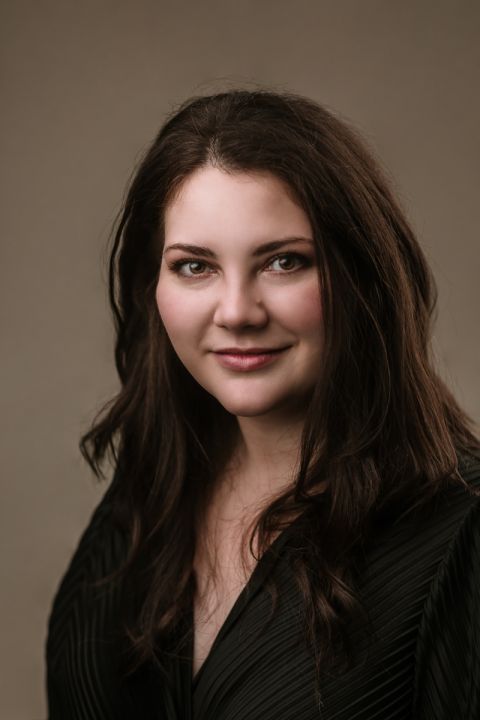
“Helping clients who cannot otherwise afford legal assistance is an extremely rewarding part of my job,” says Jane Mundy, Law’18, who returned to the Queen’s Law Clinics this summer as Review Counsel for both Queen’s Legal Aid (QLA) and the Queen’s Family Law Clinic (QFLC). “Equally rewarding is working with student caseworkers and seeing them develop and grow confident in their skills as future lawyers.”
During her law school days, Mundy was a student caseworker with QLA and the Queen’s Prison Law Clinic. After graduation, she articled with QLA and the Queen’s Business Law Clinic. “Participating in the clinics was the most rewarding part of my law school experience,” she says. “I benefitted immensely from the mentorship of my review counsel as a student and I am grateful for the opportunity to continue that mentorship tradition.”
Now in the role of supervising students, Mundy says she’s excited to be back at Queen’s Law because of its commitment to improving and expanding the clinical programs that provide valuable services to the community.
“The cost of legal services is a significant barrier to access to justice for many Canadians of moderate income and is prohibitive for those with low income,” she explains. “Other barriers to accessing legal services, including mental health challenges, addictions, disability, race and gender identity, disproportionately affect people with low income.
“I am privileged to have the opportunity to help people facing these barriers in my hometown,” continues Kingston native Mundy. “I look forward to helping them access justice through our services to achieve fair results.”
With QLA, she plays a lead role in serving residents of not only Kingston, but also of Napanee and surrounding areas, as well as Queen’s University students. From criminal court to Small Claims Court, and from hearings before the Social Benefits, Social Security and Human Rights Tribunals to the Criminal Injuries Compensation and Landlord and Tenant Boards, the clinic provides clients with advice and representation in a wide range of matters.
As review counsel, in closely supervising student caseworkers, she reviews the work they do on their files. “Students take the lead in developing a legal strategy to resolve a client’s legal problem and a plan for moving forward with that strategy,” she explains. “I meet with students regularly to discuss their files and I review the correspondence they write and documents they prepare.”
Caseworkers enrolled in the Clinical Litigation Practice course for credit have weekly classes, which she – along with QLA Director Blair Crew and her fellow Review Counsel Justin Turner, Law’18 – helps develop and teach.
Working with QFLC Director Karla McGrath, LLM’13, Mundy supervises student caseworkers
assisting low-income, self-representing Family Court litigants. The students complete documents for clients, help them navigate the Family Court process, and refer them to other family justice resources. “Students meet regularly with Karla to discuss and develop a plan of action for their files, including what documents they need to prepare,” says Mundy. “I review those documents before they are provided to self-representing clients or filed with the Family Court.”
In addition, she and McGrath develop and teach weekly classes in the QFLC credit course.
Mundy’s return in the middle of a pandemic has been especially helpful. To her, the greatest challenge clinic staff and students are facing amid COVID-19 is working around clients’ limited access to technology that is now essential for them to participate in the justice system. “Remote systems such as online filing and video court require the use of technology such as a phone or a computer,” she explains. “The device alone is not enough, one also needs a phone plan, minutes, or internet access to meaningfully use this technology. For many of our clients, one or more of these pieces is missing making participation unaffordable or impossible.”
What further complicates the situation, she says, is that the Queen’s Law Clinics office in downtown Kingston is closed to the public. “We must find ways for clients to provide us with documents that they used to provide in person,” she says. “Students are not able to facilitate access to technology by having clients come to our offices and many other free public services in the area that might have helped connect clients to technology are closed or offering limited services.”
Students are helping clients by relaying communications between clients and courts, tribunals, and/or third parties. “Student caseworkers have been able to appear on behalf of clients in remote court appearances and have come up with creative ways for clients to provide documents to us or for us to offer such essential services as commissioning of legal documents to clients remotely,” she says.
“We will continue to hone our responses to new remote systems being developed now,” Mundy adds. “We anticipate many will continue to be used post-pandemic.”
By Lisa Graham
The Queen’s Law Clinics gratefully acknowledge the support of Legal Aid Ontario, the Law Foundation of Ontario, Pro Bono Students Canada, the Class of Law’81, the United Way of KFL&A, and alumni, friend, and industry sponsors.